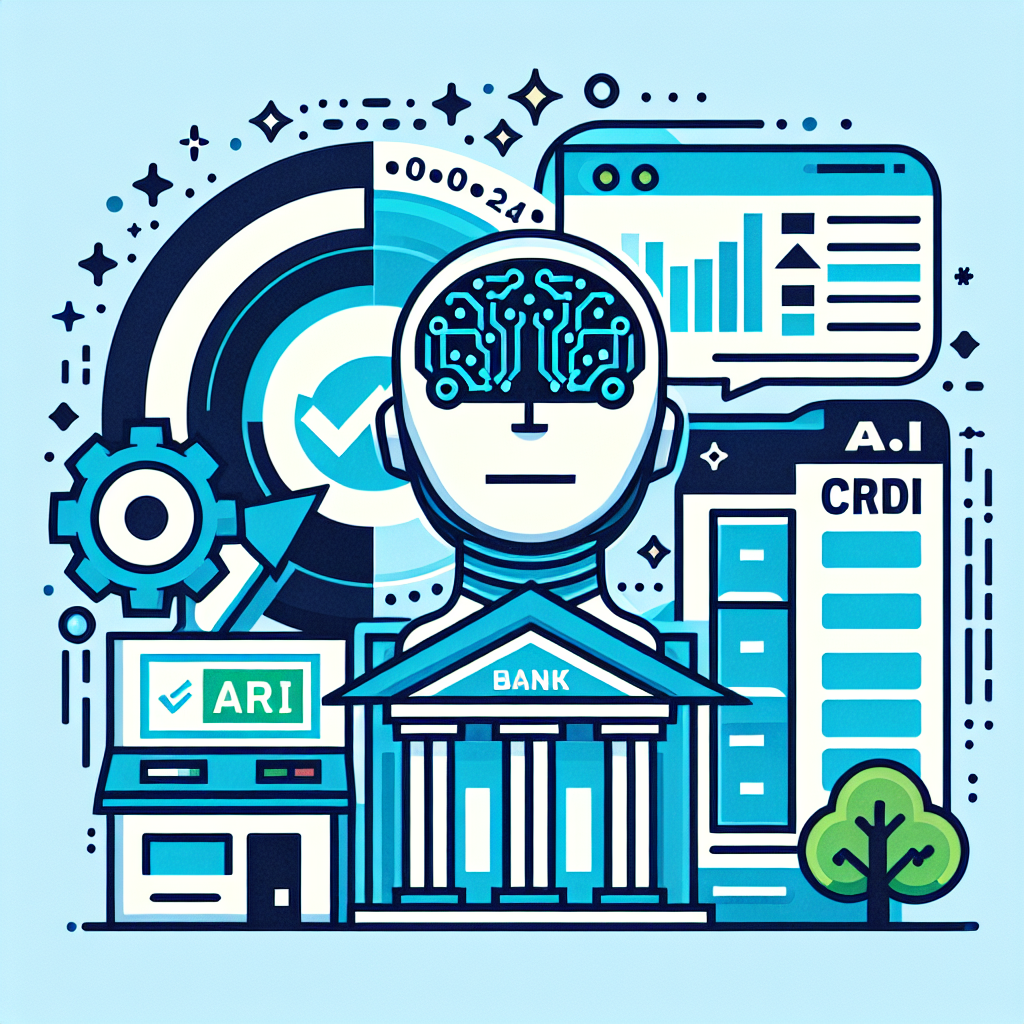Artificial Intelligence (AI) has been revolutionizing many industries, and banking is no exception. One of the key areas where AI is making a significant impact is in credit scoring. Credit scoring is a crucial process in banking that helps lenders assess the creditworthiness of borrowers. Traditionally, credit scoring has been based on a set of predetermined rules and criteria, but AI is now enabling banks to take a more data-driven and personalized approach to credit scoring.
AI algorithms can analyze vast amounts of data, including both traditional credit data (such as credit reports and payment history) and alternative data sources (such as social media activity and online shopping behavior), to generate more accurate and predictive credit scores. By leveraging machine learning and deep learning techniques, AI can identify patterns and trends in data that human analysts may miss, leading to more precise credit assessments.
There are several ways in which AI is enhancing credit scoring in banking:
1. Improved Accuracy: AI algorithms can analyze a wider range of data points than traditional credit scoring models, leading to more accurate credit assessments. By considering factors such as social media behavior, online shopping patterns, and even biometric data, AI can provide a more comprehensive view of a borrower’s creditworthiness.
2. Faster Decision-making: AI can process and analyze data much faster than human analysts, allowing banks to make credit decisions in real-time. This can help banks streamline their lending processes and provide faster approval times for borrowers.
3. Personalized Credit Scoring: AI can create personalized credit scores for individual borrowers based on their unique financial profiles. This can help banks tailor their lending products to meet the specific needs of each customer, leading to better customer satisfaction and loyalty.
4. Risk Mitigation: AI algorithms can also help banks better assess the risk associated with lending to certain borrowers. By analyzing historical data and identifying potential red flags, AI can help banks avoid lending to high-risk individuals and reduce the likelihood of default.
5. Fraud Detection: AI can also be used to detect fraudulent activity in credit applications. By analyzing patterns in application data and identifying anomalies, AI algorithms can help banks flag potential cases of fraud and prevent losses.
Overall, AI is transforming the credit scoring process in banking by making it more accurate, efficient, and personalized. However, there are still some challenges and concerns associated with AI-powered credit scoring, which we will address in the following FAQs section:
FAQs:
Q: Can AI algorithms be biased in their credit scoring decisions?
A: Yes, AI algorithms can inherit biases from the data they are trained on. For example, if historical data shows a bias against certain demographic groups, the AI algorithm may reproduce this bias in its credit scoring decisions. It is important for banks to regularly monitor and audit their AI algorithms to ensure that they are making fair and unbiased credit decisions.
Q: How can banks ensure the privacy and security of customer data when using AI for credit scoring?
A: Banks must adhere to strict data privacy and security regulations when using AI for credit scoring. They should implement robust data encryption measures, access controls, and data anonymization techniques to protect customer data from unauthorized access or misuse.
Q: What are the ethical considerations of using AI for credit scoring?
A: Banks must consider the ethical implications of using AI for credit scoring, such as transparency, accountability, and fairness. They should be transparent with customers about how their credit scores are calculated and provide avenues for recourse in case of disputed decisions. Banks should also ensure that their AI algorithms are fair and unbiased in their credit scoring decisions.
In conclusion, AI is enhancing credit scoring in banking by improving accuracy, speed, personalization, risk mitigation, and fraud detection. While there are challenges and concerns associated with AI-powered credit scoring, banks can address these issues by monitoring bias, ensuring data privacy and security, and adhering to ethical principles. Overall, AI is helping banks make more informed and efficient credit decisions, leading to better outcomes for both lenders and borrowers.

